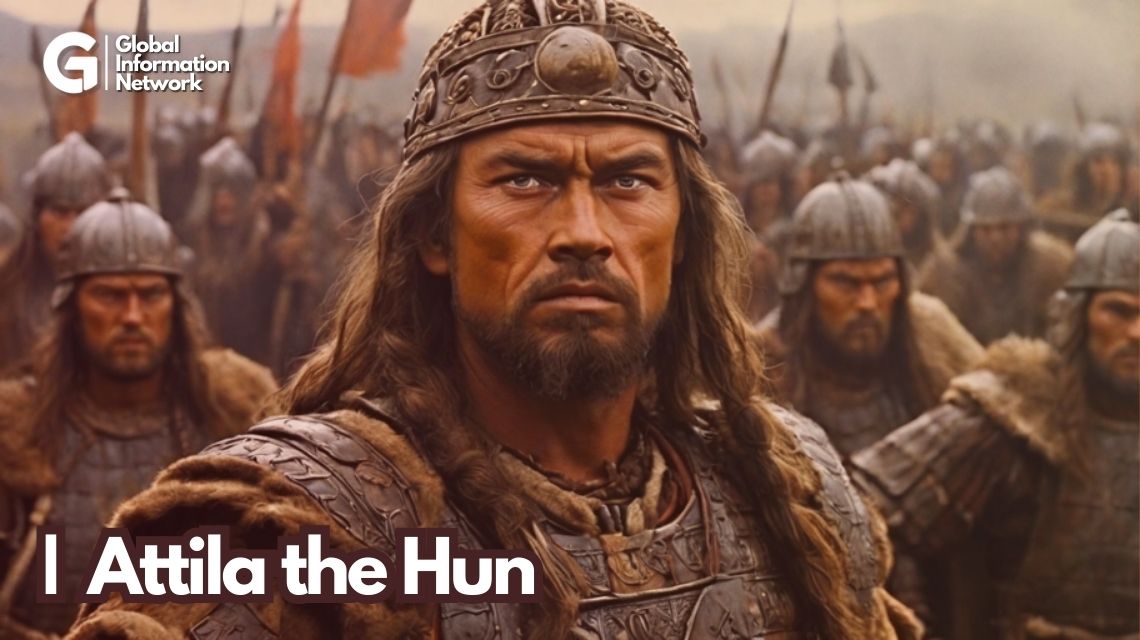Attila the Hun, often remembered as one of history’s most fearsome conquerors, ruled the Hunnic Empire from 434 until his death in 453 AD. His reign was marked by both devastating military campaigns and shrewd diplomacy. Attila's empire stretched across Central Europe, and his influence threatened even the mighty Roman Empire.
Early Life and Rise to Power
Born into a noble Hunnic family around 406 AD, Attila grew up in a world of shifting allegiances and brutal warfare. After his uncle Rugila, who was the ruler of the Huns, died, Attila and his brother Bleda inherited the leadership of the empire. Attila soon became the sole ruler after Bleda’s mysterious death, rumored to have been orchestrated by Attila himself.
{inAds}
Military Prowess and Strategy
Attila’s military campaigns terrorized Europe, earning him the title “Scourge of God.” His strategy was a blend of direct confrontation and psychological warfare. The Huns were feared for their mobility, as they were master horsemen, able to move swiftly and strike unpredictably. Attila’s forces ravaged parts of the Eastern Roman Empire, forcing Emperor Theodosius II to pay massive tributes to keep the Huns at bay.
In 451 AD, Attila turned his attention to the Western Roman Empire. He led a massive invasion into Gaul (modern-day France), culminating in the Battle of the Catalaunian Plains. This battle saw the combined forces of the Romans and Visigoths clash with Attila’s army. Although the battle was inconclusive, it halted Attila’s advance into Western Europe.
Attila and Rome: A Complex Relationship
Attila’s relationship with the Roman Empire was one of both hostility and diplomacy. While he demanded tribute and plundered Roman cities, he also engaged in negotiations, often using the threat of war as leverage. One of the most famous interactions came in 452 AD, when Attila invaded Italy and reached the gates of Rome. According to legend, Pope Leo I met Attila and convinced him to turn back, though the exact reasons remain a matter of speculation.
{inAds}
Legacy and Death
Attila’s sudden death in 453 AD, on the night of his wedding to a young bride named Ildico, remains shrouded in mystery. Some accounts suggest he died of a nosebleed, while others hint at assassination. His empire, which had been built on his personal leadership and charisma, quickly fell apart after his death, as his sons fought for control.
Despite the collapse of his empire, Attila’s legacy endures. He is often portrayed as a barbarian king, but historical evidence shows that he was also a shrewd leader who understood the complex dynamics of diplomacy and war. His impact on Europe, particularly the Roman Empire, was profound, and his name continues to evoke images of strength and fear.
Conclusion
Attila the Hun remains one of history’s most enigmatic figures. Whether viewed as a ruthless conqueror or a clever diplomat, his influence on the ancient world is undeniable. His ability to unite a vast and diverse group of people under one empire and his tactical brilliance in warfare ensured that his name would be remembered for centuries. While his methods were brutal, Attila’s leadership reshaped the map of Europe and left an indelible mark on history.

